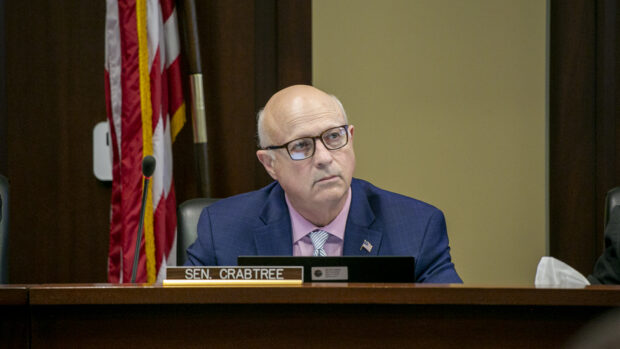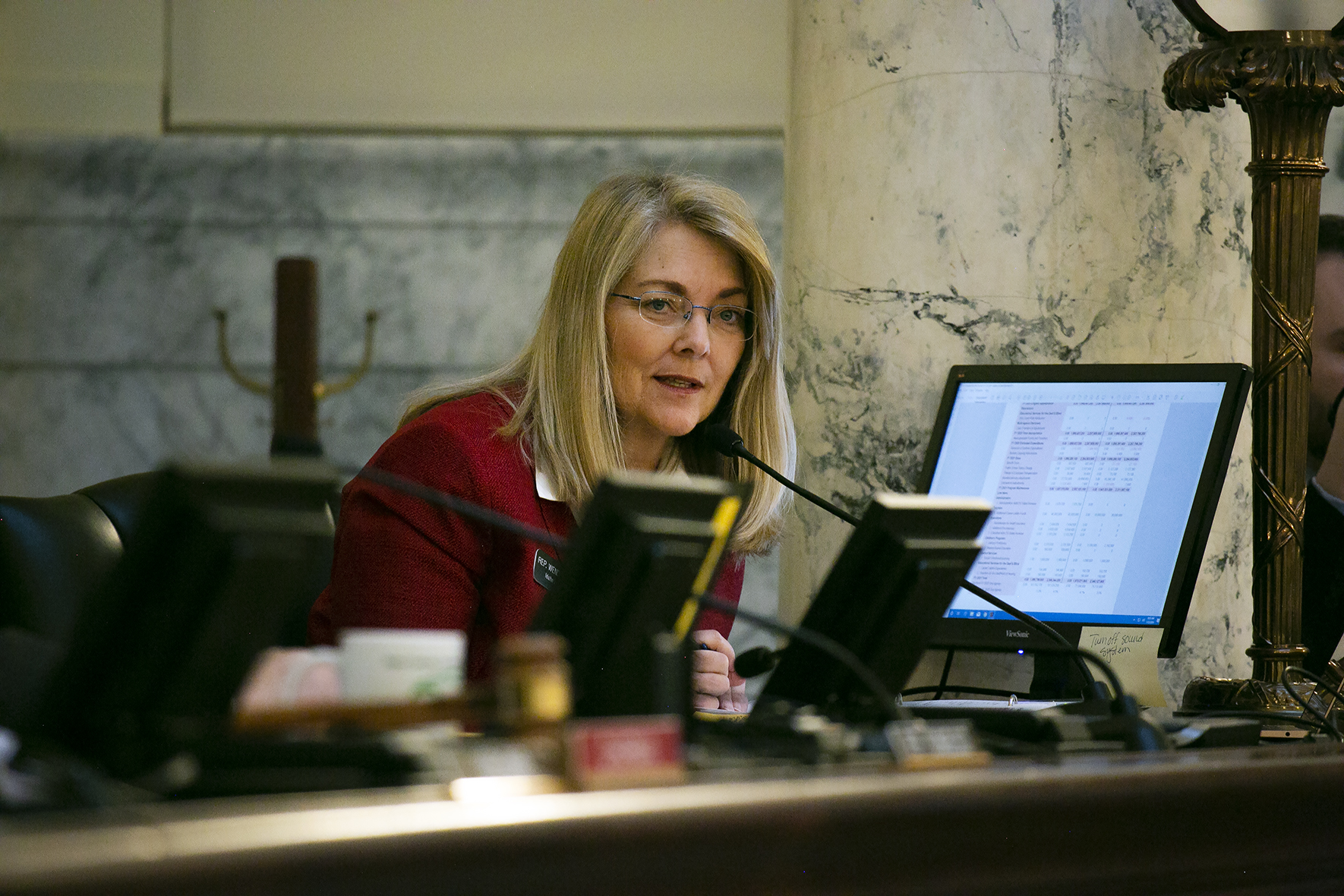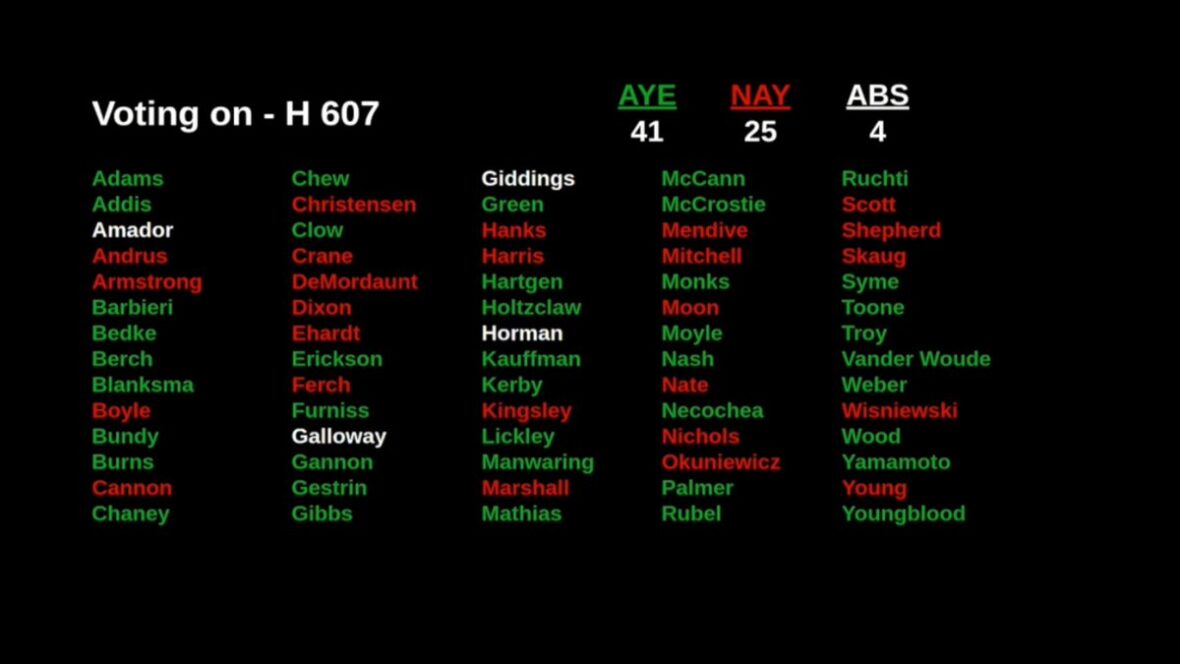Legislative budget-writers agreed to put $50 million into the Empowering Parents Grants program.
But Tuesday’s deeply divided vote suggests the budget could run into some resistance on the House floor.

The dustup in the Joint Finance-Appropriations Committee had little to do with the grant program itself. Gov. Brad Little has proposed using $50 million of federal coronavirus aid to provide families with grants they can use to meet educational needs — such as purchasing computers or internet access or behavioral or physical therapy.
Instead, the debate centered on the costs of administering the program.
Rep. Wendy Horman, R-Idaho Falls, proposed a budget that earmarked slightly more than $1 million from the state’s general fund. This money would cover the upfront cost of starting the program — including a staff position, and creating a “digital platform” to process grant applications.
Sen. Carl Crabtree, R-Grangeville, proposed no general fund line item to cover the upfront costs. In essence, that means the State Board of Education would have to pay these expenses from its existing budget, or take the costs out of the $50 million in federal coronavirus aid.
Crabtree argued that his proposal would protect the state’s general fund — by not creating a new, state-funded staff position.

Horman argued that the position would still go away if the state decides to close down the Empowering Parents Grants program after the feds’ money is spent. And she argued against using the federal money to cover operating costs. If the state doesn’t cover operating costs, she said, 1,185 kids would be shut out of a share of the education grants.
On Feb. 10, the Senate passed a bill setting up the grant program, and spelling out a plan to use nearly $1.2 million of state general fund money for program administration. It passed 34-1, with support from Crabtree and eight of the other nine senators on JFAC.
But on Tuesday, Crabtree and seven other JFAC senators supported his motion to run the Empowering Parents Grants program without using any state dollars for administration.
JFAC passed Crabtree’s motion on a 10-9 vote.
But only two of the House’s 10 JFAC members — Boise Democrats Brooke Green and Colin Nash — sided with Crabtree.
The budget will now have to pass in both the House and Senate in order to go to Little’s desk.
House doubles down on Powerball
Idaho’s “Powerball bill” survived a House vote Tuesday, keeping the lottery’s chances at continued operation in the state alive.
House Bill 607 would allow the Idaho Lottery to stay in a growing, international Powerball compact that generates around $9 million for public schools annually. But after the House State Affairs Committee killed a similar bill last year over Powerball’s pending international expansion, the odds appeared stacked against HB 607.
A reluctant House State Affairs Committee passed the new bill to the House last week, but their concerns about Powerball expanding from Canada and the U.S. into the U.K. and Australia lingered.
Rep. Bruce Skaug, R-Nampa, looped in his moral opposition to gambling, and added, “I don’t like the expansion.”
Multiple other dissenters raised broad moral concerns with gambling and invoked religious objections to the practice. Although Idahoans’ chances of winning the Powerball would go unchanged after an expansion, lawmakers said growing jackpots could draw in more players to their own detriment.
In one case, a lawmaker voiced a more novel concern.
“I don’t like the fact we’re going into communist countries,” Rep. Heather Scott, R-Blanchard, said, pointing to Australia as an example.
Assistant Majority Leader Jason Monks, R-Meridian, later told the floor, with a smile, that Australia and the U.K. are not communist. But that wasn’t before Scott closed her speech by saying, “I don’t know why you’re all laughing, but I don’t appreciate it Mr. Speaker.”
The bill ultimately passed, but members weren’t all in. It cleared 41-25, with only Republicans opposing it.

After a similar bill died last year, the Powerball was granted a one-year reprieve as negotiations to expand stalled. Now that HB 607 is through the House, affirmative votes from the Senate and the Senate State Affairs committee could power the lottery game to survival in the Gem State.
Last year, a combined $45.3 million from the Idaho Lottery went to the school building fund and the Bond Levy Equalization Fund — a record high.
Over the next decade, the Powerball is projected to bring in $200 million in dividends for public schools, the K-12 Bond Levy Equalization Fund, and the Permanent Building Fund, which finances state and campus capital projects.
Dispute over dyslexia bills escalates
Joined by about 20 parents and children, three GOP legislators accused Republican colleagues of stonewalling a bill addressing dyslexia, a reading disorder that affects about one of every five children.
The Statehouse news conference came less than a week after the Senate unanimously passed a bill calling for increased screening for kindergarten through fifth-grade children, and training to help teachers work with students with dyslexia.
The House Education Committee has not yet taken up Senate Bill 1280. State superintendent Sherri Ybarra and House Education Chairman Lance Clow are among the co-sponsors of House Bill 655, a competing bill that also calls for training for teachers, and the use of “assistive technology resources” for students with dyslexia.
One big difference between the bills is its “fiscal note,” a breakdown of costs. HB 655 calls for putting more than $2 million into dyslexia services. Sponsors of SB 1280 say the State Department of Education can implement the program using existing funds. “We’re talking about a shift in emphasis,” said Crabtree, a co-sponsor of SB 1280.
Robin Zikmund, a Meridian parent and founder of Decoding Dyslexia Idaho, spoke at Tuesday’s news conference. She said SB 1280 was written with input from experts in the field, and applies ideas from dyslexia plans in other states. Idaho is the only state in the union without a dyslexia plan.
“We have an opportunity, an opportunity to do it right,” she said. “We simply want resources put in place for our students. Let’s catch them early.”
In an email Tuesday, Clow said he is looking to reconciling the two proposals.
“We are trying to get the best dyslexia bill forward and I am committed to doing so,” he said. “We have been working on input and plans for what should be in these bills, and the appropriate fiscal note.”
Supporters of SB 1280, including Senate Education Committee member Robert Blair, R-Kendrick, and House Education member Judy Boyle, R-Midvale, said HB 655 does more to protect the education bureaucracy than it does to help kids. And after last week’s unanimous vote, Crabtree said he isn’t interested in negotiating.
“I don’t see that there’s any reason to talk about other bills,” he said.
